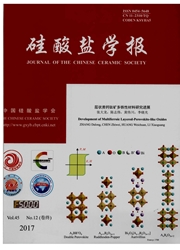

 中文摘要:
中文摘要:
选取一种碳酸盐矿化菌,利用其新陈代谢过程中发生的酶化反应分解底物生成CO^2-3,通过适时引入Ca^2+,最终在水泥石表面沉积一层致密而坚硬的碳酸钙保护层。研究了不同生长阶段的细菌和Ca^2+浓度对所得碳酸钙层的物理、化学性能的影响,并通过测试毛细吸水系数表征试样表面覆膜后的抗渗效果。结果表明:细菌活性和Ca^2+浓度对所沉积的碳酸钙的晶型和形貌均有很大程度的影响;经过菌液浸泡法表面覆膜的水泥石试样,其表面吸水系数大大降低,抗渗性能得到有效改善。
 英文摘要:
英文摘要:
Bacterially induced calcium carbonate precipitation was used as a novel and environmentally friendly approach to produce a protective layer on the surface of cement-based materials in the study. The physical and chemical properties of the obtained layers were examined. The composition of the deposited layers was characterized by X-ray diffraction analysis and the morphology of the particles was displayed by scanning electron microscopy. The results show that bacterial activity has a profound effect on the properties of the calcium carbonate layers. A capillary water absorption test was carried out to evaluate the ability of the protective layers. Experimental results indicate that the calcium carbonate layer, obtained under the conditions of a high bacterial activity and an appropilate concentration of Ca^2+ can greatly improve the water penetration resistance of the specimen surfaces. This type of treatment has the potential to conserve and consolidate cement-based materials.
 同期刊论文项目
同期刊论文项目
 同项目期刊论文
同项目期刊论文
 期刊信息
期刊信息
